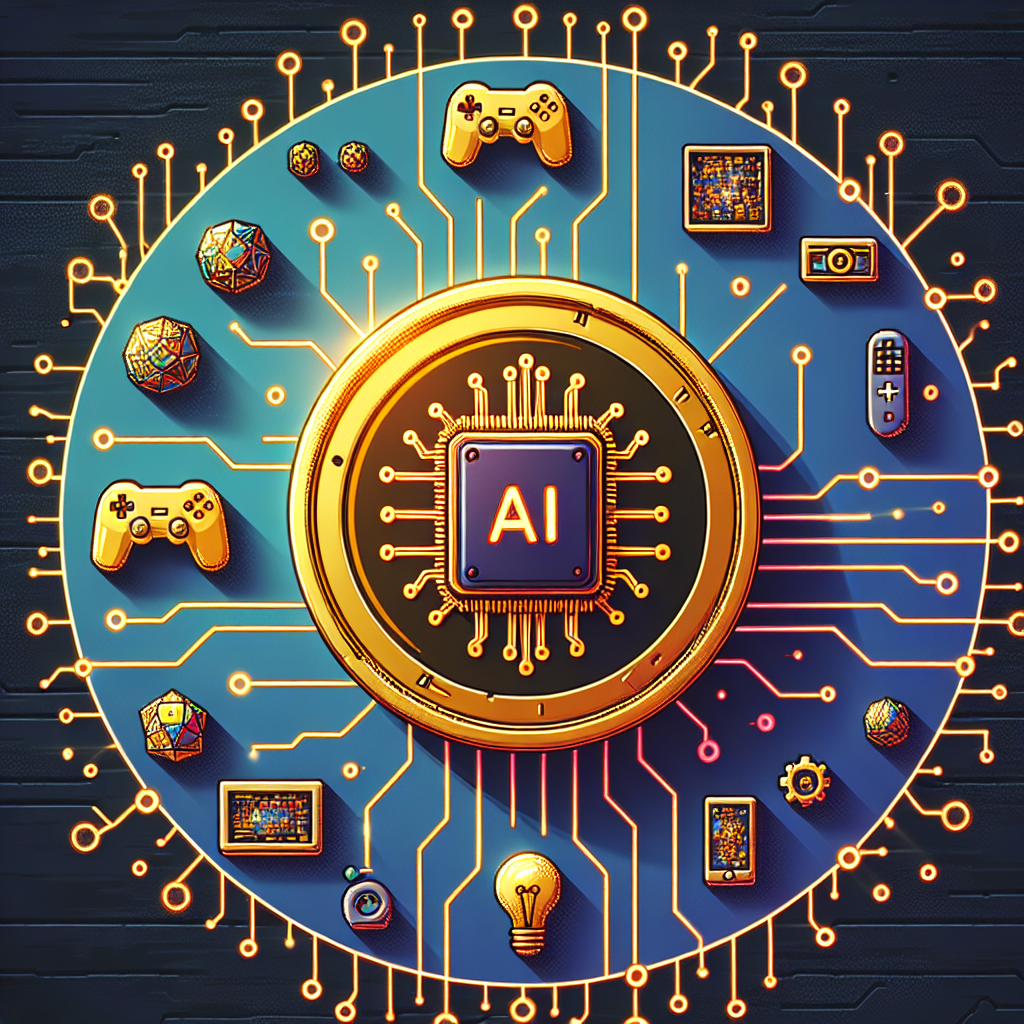The Influence of AI on Game Monetization Models
In recent years, the gaming industry has seen a significant shift in how games are monetized. With the rise of artificial intelligence (AI) technology, game developers are able to create more personalized and engaging experiences for players, leading to new and innovative monetization models. In this article, we will explore the influence of AI on game monetization models and how it is shaping the future of the gaming industry.
AI-Powered Personalization
One of the key ways AI is influencing game monetization models is through personalized experiences for players. AI algorithms can analyze player behavior, preferences, and playing styles to create tailored experiences that keep players engaged and coming back for more. This level of personalization can lead to increased player retention and higher monetization opportunities.
For example, AI can be used to recommend in-game purchases based on a player’s past behavior and preferences. This could include suggesting items or upgrades that would enhance the player’s experience or offering discounts on items that the player has shown interest in. By providing personalized recommendations, game developers can increase the likelihood of players making purchases, ultimately leading to higher revenue.
Dynamic Pricing
AI technology can also be used to implement dynamic pricing strategies in games. By analyzing player behavior and market trends in real-time, AI algorithms can adjust prices for in-game items or virtual currency to maximize revenue. For example, prices could be lowered during off-peak hours to encourage more purchases or increased during peak hours to capitalize on high demand.
Dynamic pricing can help game developers optimize their monetization strategies and adapt to changing market conditions. By using AI to monitor player behavior and adjust prices accordingly, developers can increase revenue while also providing players with a more personalized and engaging experience.
Predictive Analytics
Another way AI is influencing game monetization models is through predictive analytics. By analyzing large amounts of data, AI algorithms can predict player behavior and preferences, allowing developers to anticipate player needs and tailor their monetization strategies accordingly. For example, AI can predict when a player is likely to make a purchase based on their past behavior and offer incentives or promotions to encourage them to do so.
Predictive analytics can also be used to identify high-value players who are more likely to make purchases and target them with personalized offers or rewards. By focusing on these players, developers can maximize their monetization opportunities and increase revenue.
In-Game Advertising
AI technology is also being used to improve in-game advertising strategies. By analyzing player behavior and preferences, AI algorithms can deliver targeted ads that are more relevant and engaging to players. This can lead to higher click-through rates and increased ad revenue for game developers.
For example, AI can analyze a player’s in-game activities and preferences to determine the most relevant ads to display. This could include ads for products or services that align with the player’s interests or ads that are tailored to their demographic profile. By delivering more targeted ads, game developers can increase the effectiveness of their advertising campaigns and generate more revenue.
FAQs
Q: How is AI being used to personalize game experiences for players?
A: AI algorithms can analyze player behavior, preferences, and playing styles to create tailored experiences that keep players engaged and coming back for more. This can include recommending in-game purchases, adjusting prices dynamically, and predicting player behavior to optimize monetization strategies.
Q: How does AI influence in-game advertising?
A: AI technology is used to deliver targeted ads that are more relevant and engaging to players. By analyzing player behavior and preferences, AI algorithms can determine the most relevant ads to display, leading to higher click-through rates and increased ad revenue for game developers.
Q: What are some examples of AI-powered monetization models in games?
A: AI-powered monetization models include personalized recommendations for in-game purchases, dynamic pricing strategies, predictive analytics to anticipate player behavior, and targeted in-game advertising. These models aim to increase player engagement and maximize revenue for game developers.
Conclusion
The influence of AI on game monetization models is transforming the gaming industry, enabling developers to create more personalized and engaging experiences for players. By leveraging AI technology to analyze player behavior, preferences, and market trends, developers can optimize their monetization strategies and increase revenue. From personalized recommendations to dynamic pricing strategies and targeted advertising, AI is reshaping how games are monetized and setting new standards for player engagement and monetization in the gaming industry.

